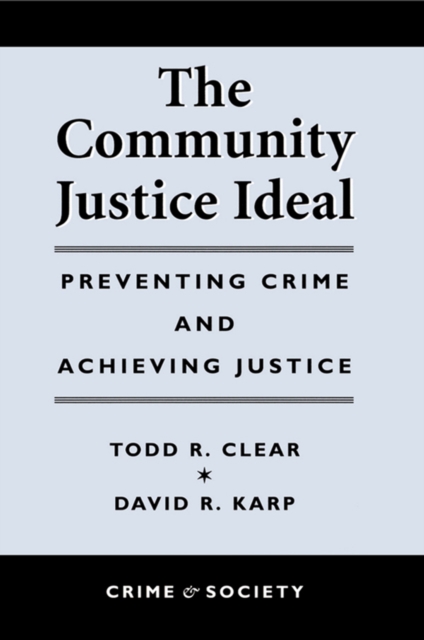
The Community Justice Ideal EPUB
by Todd R Clear, David Karp
EPUB
Description
Over the past quarter-century, U.S. politicians have responded to the public's fear of crime by devoting ever more resources to building and strengthening the criminal justice apparatus, which as a result has grown tremendously in size and cost.
Policymakers have also taken steps to toughen procedures for dealing with suspects and criminals, and broaden legal definitions of what constitutes crime, which has led to the incarceration, under harsher-than-ever conditions, of a record-high percentage of the U.S. population. Yet public confidence in the criminal justice apparatus is, if anything, lower than ever before, and fear of crime continues to be high.In recent years, some activists, scholars, criminal-justice officials, and politicians have begun to call for a reexamination of "get-tough" crime policies.
A more sensible approach to crime, they argue, would focus on "community justice"--that is, on building healthy communities in which criminality cannot take root, and on making citizens and criminal-justice into partners rather than adversaries.
In this thought-provoking study, Todd Clear and David Karp provide both a broad theoretical analysis of this ideal, and a close examination of a range of attempts to put it into practice in communities throughout the country.
They conclude that by making the criminal justice system and the public into partners rather than adversaries, community-justice strategies for dealing with crime are both more effective and more resource-efficient than the failed "get-tough" approach.
Information
-
Download - Immediately Available
- Format:EPUB
- Pages:208 pages
- Publisher:Taylor & Francis Ltd
- Publication Date:05/03/2018
- Category:
- ISBN:9780429976360
Other Formats
- PDF from £38.69
- Paperback / softback from £40.65
- Hardback from £130.00
Information
-
Download - Immediately Available
- Format:EPUB
- Pages:208 pages
- Publisher:Taylor & Francis Ltd
- Publication Date:05/03/2018
- Category:
- ISBN:9780429976360






